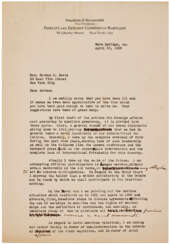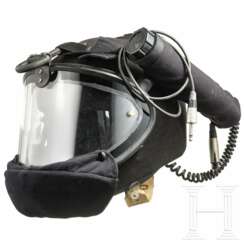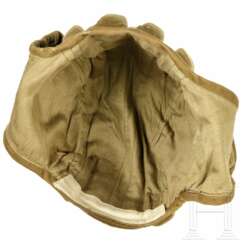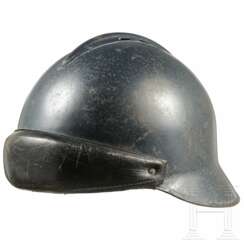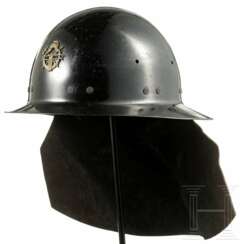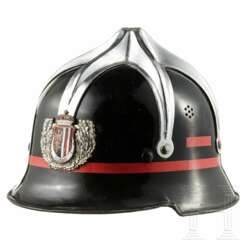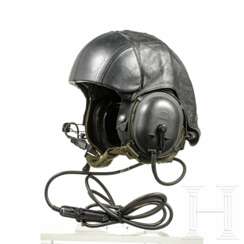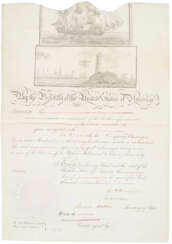post-war foreign states
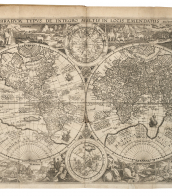
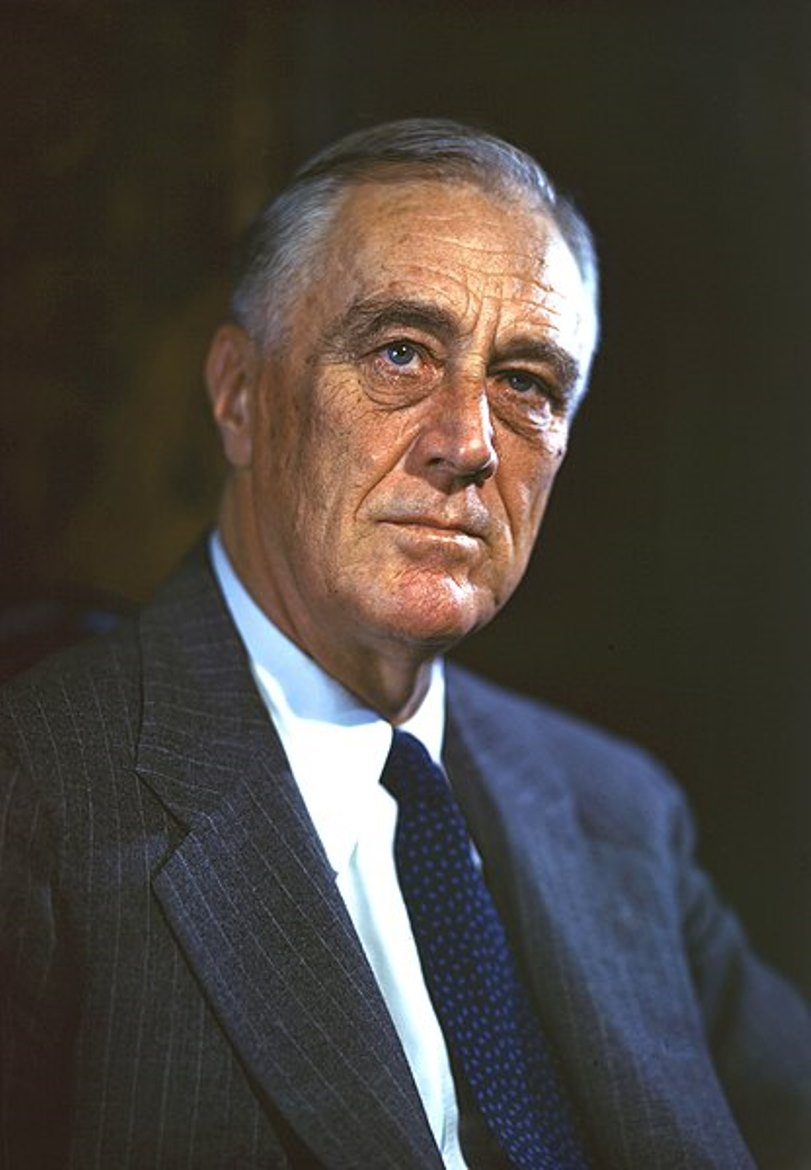
Franklin Delano Roosevelt was an American politician and statesman, the 32nd President of the United States (1932-1945).
Franklin was educated at Harvard University and Columbia Law School. His cousin was President Theodore Roosevelt, and Franklin also went into public service, but as a Democrat. He was elected to the New York Senate in 1910, President Wilson appointed him Assistant Secretary of the Navy, and Roosevelt became Governor of New York in 1928.
In November 1932, Franklin D. Roosevelt was elected president of the United States. Taking office in the midst of the Great Depression, Franklin D. Roosevelt, with his "Hundred Days" and "New Deal" programs, helped the American people regain faith in themselves. In 1936, he was re-elected by a large margin. During this difficult political period, he sought through neutrality legislation to keep the U.S. out of the war in Europe, but at the same time to strengthen countries that were threatened or attacked. Japan's surprise attack on Pearl Harbor on December 7, 1941, drew the country into the war.
In 1944, as Hitler's Germany was nearing its collapse, an ailing Roosevelt managed to win the presidency again. The following February, he met with Churchill and Stalin at the famous Yalta Conference. His health was deteriorating, and on April 12, 1945, Franklin Roosevelt died of a cerebral hemorrhage. He was the only U.S. president to be elected to office four times. Roosevelt successfully led the United States through two of the greatest crises of the 20th century: the Great Depression and World War II.

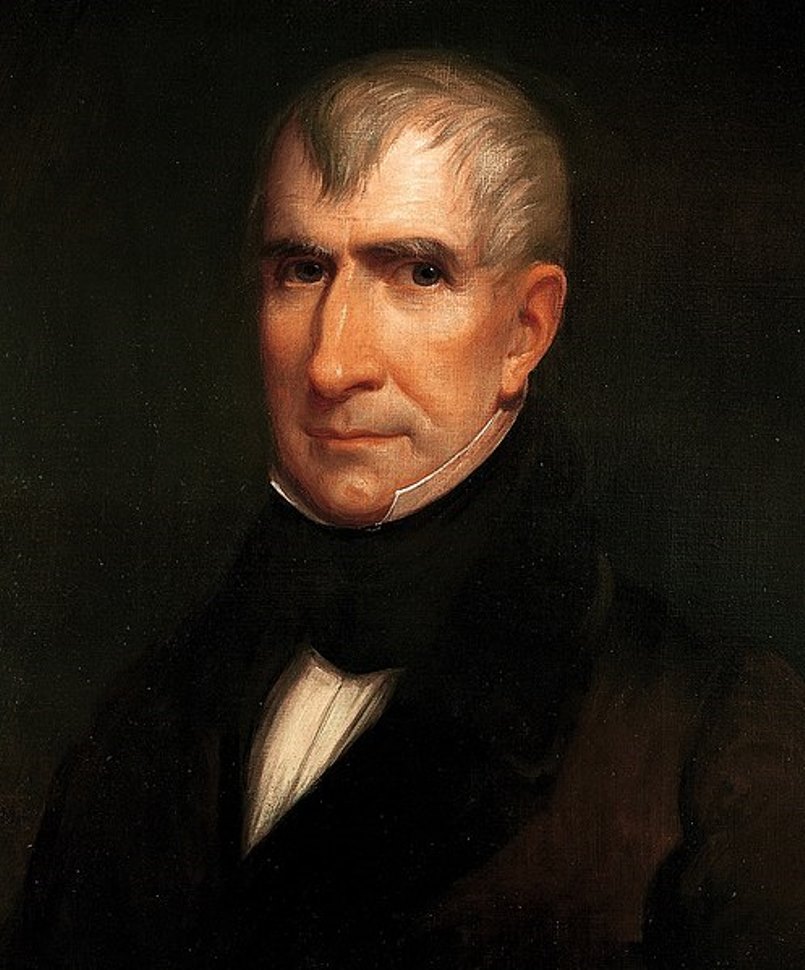
William Henry Harrison, an American military officer and politician, became the ninth President of the United States in 1841, making history with the shortest presidency due to his death just 31 days after taking office. Born on February 9, 1773, in Charles City County, Virginia, Harrison was the last U.S. president born as a British subject and the paternal grandfather of Benjamin Harrison, the 23rd president.
William Henry Harrison's early military career was marked by notable achievements, including participating in the Battle of Fallen Timbers in 1794, which concluded the Northwest Indian War. His leadership against Tecumseh's confederacy at the Battle of Tippecanoe in 1811 earned him the nickname "Old Tippecanoe." He was later promoted to major general during the War of 1812, securing a significant victory at the Battle of the Thames, which effectively ended the Indian confederation led by Tecumseh.
Before his presidency, William Henry Harrison had a prolific political career, starting in 1798 when he became the secretary of the Northwest Territory. He was then elected as the territory's delegate to the U.S. House of Representatives in 1799. In 1801, he became the governor of the Indiana Territory, where he negotiated numerous treaties with Native American tribes, acquiring vast tracts of land for the United States. Harrison's political journey also included terms in the U.S. House of Representatives, the Senate, and as the U.S. Minister to Colombia before being nominated by the Whig Party for the presidency in 1840.
His presidential campaign was famous for the "Log Cabin Campaign," where Harrison was presented as a man of the people, in stark contrast to the incumbent President Martin Van Buren, who was portrayed as an elitist. This strategy proved successful, and William Henry Harrison won the presidency with a significant margin. However, his time in office was cut short when he died of presumed pneumonia, making his wife, Anna Harrison, the first presidential widow to receive a pension from Congress.
Harrison's legacy is complex, marked by his military and political contributions that significantly impacted the United States' expansion and development during its early years.
For those interested in learning more about William Henry Harrison, signing up for updates is a great way to stay informed about new discoveries and interpretations of his life and contributions to American history. This subscription will alert you to new product sales and auction events related to this significant historical figure, providing a unique opportunity for collectors and experts in art and antiques to deepen their understanding of American history.
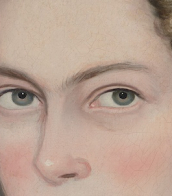








![[UNITED STATES, CONTINENTAL CONGRESS]: A complete set of the Journals of Congress, containing proceedings from 5 September 1774 to 3 November 1788. Philadelphia: Published by Order of Congress [various printers, Robert Aitken, David C. Claypoole, John Dun](/assets/image/picture_2155453/25f41/9d080a17732d756c3943ca2ce89a6d3c1653429600jpg__fix_374_244.jpeg)
![[UNITED STATES, CONTINENTAL CONGRESS]: A complete set of the Journals of Congress, containing proceedings from 5 September 1774 to 3 November 1788. Philadelphia: Published by Order of Congress [various printers, Robert Aitken, David C. Claypoole, John Dun](https://veryimportantlot.com/assets/image/picture_2155453/25f41/9d080a17732d756c3943ca2ce89a6d3c1653429600jpg__fix_374_244.jpeg)
